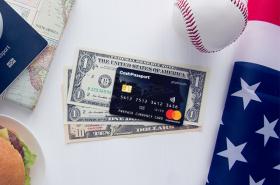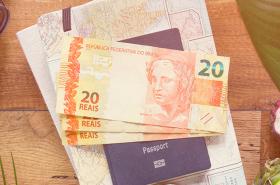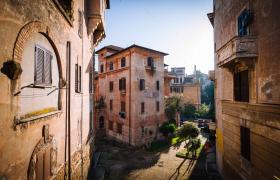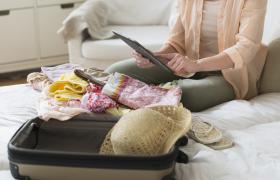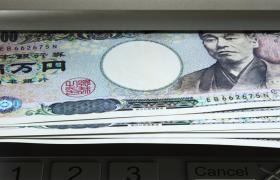Are you planning on saying au revoir to New Zealand and bonjour to all of your pastry dreams in France?
Known for medieval castles, timeless art and culture, delectable cuisine and breathtaking landscapes, France is a hot spot for Kiwi travellers. When your planning on spending a few weeks in France, or a few days in Paris as part of a more extensive European itinerary, you're going to need to consider your travel budget.
While France uses euros like most of Western Europe, their daily expenses vary slightly to what you might expect in other countries. We understand that this can get confusing, so we've whipped up a nifty little travel budget planner that covers France (and every other country you plan on visiting).
Before we jump into number crunching, let's break down what is included in a French travel budget.
What goes into a French travel budget?
Transport
Unfortunately, scientists haven't mastered the art of teleportation yet, so you're going to have to stick with plain old air travel to get to France. Flights through Asia and the Middle East run daily and will connect you through to France and wider Europe. Thankfully the popularity of the route has brought down prices over time. While flights will likely be your most significant expense of the trip if you keep an eye on deals and fly outside of peak periods you can reduce costs further.
Once you arrive in France, there are a few options for getting between cities and towns, flights and trains being the two most popular. There are 170 airports in France, so you should have no struggle getting a flight to an airport close to your destination. Low-cost carriers cover many of these, so check their website for deals. Just be cautious of extra baggage costs that may not be included in your ticket, especially if you are carrying ski gear.
If flying isn't your thing, or if you're keen on seeing more of the countryside, train travel is your best option. The French Government has invested heavily in a fast and efficient rail network that connects the majority of France. Tickets vary in cost, and it is recommended to purchase in advance to secure your seat and a reasonable price. The only exception is if you have a Eurorail pass, which doesn't require you to reserve your seat in advance.
Finally, if you're keen to travel at your own pace, car hire is a fantastic option. Ensure you have an international license and adequate travel insurance before hiring the car. Once these are secured, you are free to roam the French countryside as you wish. Tolls can quickly add up though, so depending on how much driving you plan on doing, you may need to budget around 10 euro per day for tolls.
Once you arrive at your destination, your means of travel will vary depending on where you are. In Paris and other bigger cities, there is ample public transport via buses and metro systems. Aside from walking, they are the most affordable option of getting around. If you have hired a car and are choosing to drive around cities, don't forget to account for parking charges.
Accommodation
France has accommodation options for every traveller and budget, ranging from 20 euro per night in a hostel bed to 3000 euro per night for master suites. Your style of travel will determine where you stay and how much you spend.
If you do have a car, look for accommodation that offers free parking. Otherwise, aim for places that are close to public transport so you can easily get around.
As you go further from cities into the French countryside, you will be greeted with gorgeous bed and breakfasts and rustic homestays. There are incredibly cosy,welcoming, and reminiscent of the culture of the area.
Finally, if you are travelling to ski areas in winter, prepare for prices to be jacked up. Alas, the chalets and houses are well worth the cost. There is nothing better than cosying up next to the fire with a nightcap after a big day on the slopes.
Food
French cuisine is far more than buttery croissants, perfectly cooked baguettes and delicious crepes (though these are all very valid choices).
Different regions of France are known for different cuisines; however, through all, you're able to indulge in rich stews and casseroles, gooey cheeses, roasted meats, puffy souffle and everything in between. These are, of course, all washed down with a glass or two of world-renowned French wine.
France is a culinary delight, and I encourage you to eat as much and as often as possible. However, it is worth knowing that the food isn't always cheap, especially if it is an up-market restaurant. As a rule of thumb, the closer you are to tourist attractions, the more you will pay regardless of how good the food is. So, with this in mind, do a bit of research and make an effort to travel slightly further afar to save some cash and delight your taste buds.
As a rule of thumb, you can expect to pay around the following:
Croissants, pastries, bakery goods etc: 3 - 10 euros
Salads and soups: 10 euros and up
Meals at a restaurant (think stews, roasted meats.): 20 euros and up
Western food like pizzas and burgers: 10 - 20 euros
Escargot: 10 euros and up
If all else fails and you are running low on funds, croissants are 2 euros. So fill your stomach with pastry and your heart with joy.
Activities
As you fill your stomach with incredible cuisine, be sure to fill your brain with plenty of French culture and history. In Paris alone, there are 130 museums, some of which charge entry and others which are free. In bigger cities, it's also worth taking part in a free walking tour, or some guided adventures. I highly recommend bike tours in Paris, ranging between 50 and 200 Kiwi dollars; they are a great way to see the city and gain an insight into history.
The French countryside also boasts plenty of wineries that you are free to explore on foot, by bike or as part of a tour. Otherwise, if you are visiting during winter, be sure to try your hand at some snowsports. The ski rental and passes can add up though, so account for them in your budget instead of making them a last-minute expense.
Pre-travel expenses
Like any holiday, you also need to consider other costs like travel insurance, visas and any vaccinations. France is part of the Schengen zone, so Kiwi's don't need a visa for stays under 90 days.



